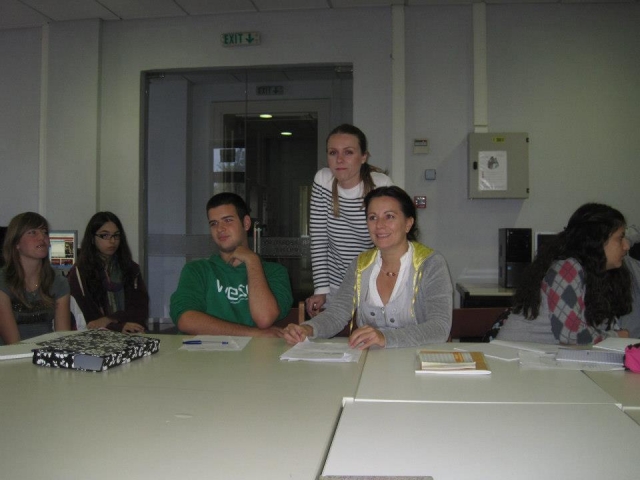"What I try to teach the children is mutual respect. I teach history and politics and law, as well as the new research programmes that are related to innovation in the sense that they train the spirit of teamwork, they train the children to have new ideas and critical thinking. The generation I teach does not have critical thinking and so, I think my mission is very serious. I want to teach them true democracy, not anarchy, because the two concepts are often mixed up, unfortunately."

Bridges between nations
"The thing that interests me a lot is to make bridges between nations and people, because I believe in the international mosaic. I want to bury the tomahawks and try to mitigate a little the historical events, which make us enemies, without forgetting. Patriotism is a good thing, but philanthropy is even better.
Currently, I am teaching at a Greek and at a Bulgarian school. How can you teach children who have roots in Bulgaria and Greece, which ones are bad and which ones are good? If you open the Greek books - Bulgarians are bad, if you open Bulgarian ones - though written in a softer way, the roles change. I want to see the good things in both textbooks. The Bulgarian textbooks that are more tolerant fascinate me. I often show the Bulgarian textbook to my Greek pupils and tell them to see how we perceive them, with what respect we read about Athens, Sparta, etc. The children see and realize that obviously there are things that make us love them and that probably they know less about us than we know about them."
It is important to Anna Kalincheva that her pupils take the best from all cultures they meet; not to forget their roots, but to add to them all the good things of the country in which they are. I try to inspire them with respect for all nationalities. The passport gives us a nationality, but I think it is a kind of rented nationality. Boundaries are now stabilized, but ultimately, what do 100 years mean to history? In addition, I'm engaged a little in Balkan studies. The idea of Rigas Fereos and Georgi Rakovski is something that inspires me and appeals to me a lot. Perhaps the fate of the Balkan nations would have been very different if they had joined then. Ultimately, the solution is probably for the Balkan nations to get to know each other, because I think that we really do not know each other enough."
Racism and xenophobia
Anna commented on the increasing number of cases of xenophobia in Greece with personal examples. During her student years, it was difficult for her to rent lodging. On the other hand, she says, "Am I not blessed with teaching at one of the best schools and being awarded by the Greek Ministry of Education? On the one hand - yes, there is xenophobia. But on the other, I think that if you can make the people come to know you and if they are open enough to listen to you, then they might change their minds. I've had pupils of stronger nationalistic disposition. When they come to know me, we become best friends. When I show them my way of thinking and when I am honest, children usually have good barometers and understand what it is about. And when you manage to return a child from the road of wrong nationalism he has taken, it's a victory."